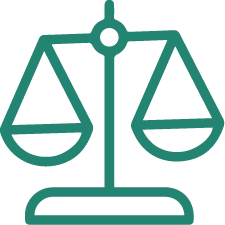MDCG revises Q&A on importers, distributors' requirements (MDCG 2021-27 Revision 1), EU Regulations 2017/745 & 2017/746.
.png?width=1536&height=864&name=New%20MDCG%20Guidance%20Documents%20Released%20(1).png) On December 21st, 2023, the Medical Device Coordination Group (MDCG) released the first revision on the questions and answers on Articles 13 & 14 on the requirements of importers and distributors of Regulation (EU) 2017/745 and Regulation (EU) 2017/746 (MDCG 2021-27 Revision 1).
On December 21st, 2023, the Medical Device Coordination Group (MDCG) released the first revision on the questions and answers on Articles 13 & 14 on the requirements of importers and distributors of Regulation (EU) 2017/745 and Regulation (EU) 2017/746 (MDCG 2021-27 Revision 1).
This revision contains following updates
The importer should always consider providing the accompanying documentation with the smallest saleable package of the device to ensure that the importers details reach the end user (i.e., the smallest package that can be purchased by the end user as determined by the manufacturer). In cases where there is a risk of jeopardising the device’s compliance with the general safety and performance requirements, the importer may carry out this activity in cooperation with the manufacturer. For a device delivered in multiple boxes due to its size or its configuration, the accompanying document may be provided once rather than on each individual box provided it is supplied to a single user or location.
It further explains that although Fulfilment service providers (FSP) are not defined as economic operators and as such do not need to fulfil the economic operators’ obligations, where they carry out activities which also meets the definitions of an importer or distributor under the MDR/IVDR, the related roles and obligations outlined in Article 13 and 14 of the Regulations do apply.
Next it confirms that the same natural or legal person can be the authorised representative and importer for a specific device, yet a natural or legal person cannot fulfil the role of importer and distributor for an individual device, given that the distributor is ‘any natural or legal person in the supply chain, other than the manufacturer or the importer, that makes a device available on the market, up until the point of putting into service’.
On the topic of verification obligations for importers and distributors it notes that physical checks are an essential tool for ensuring device compliance, detecting non-compliances and preventing such non-compliant devices from being made available on the market. When such a check cannot be done without e.g. compromising the integrity of the packaging and compliance of the device in exceptional and justified cases, the verification should be based on documentation checks. To allow this, manufacturers and/or importers should allow the distributor access to the EU declaration of conformity upon its request. It’s important that the importer and distributor can demonstrate to the competent authority that they have performed these verification checks through their internal records or procedures, also taking into account national provisions when applicable.
On system or procedure packs (SPP) that consists of one or more individual CE-marked devices from third country manufacturers, the SSP pack producer (SSPP) established in the EU will be considered as importer of the individual devices. If the SSP however is already placed on the EU market, the SSPP will be considered as distributor.
Conclusion
Last, leasing companies may be regarded as importers or distributors according to the specific activities they carry out with respect to placing on the market or making available of a device. If the leasing company’s activities fall under the scope of those of an importer or distributor, the related obligations would apply to it. Where leasing companies are not a part of the supply chain at all (i.e. do not carry out any of the activities concerning the first placing on the market or making available of a device) they should not be considered to act as an importer or distributor.







.png?width=109&height=108&name=Pharma%20(2).png)
.png?width=111&height=108&name=Medical%20Devices%20(2).png)
.png?width=84&height=107&name=IVD%20(2).png)








